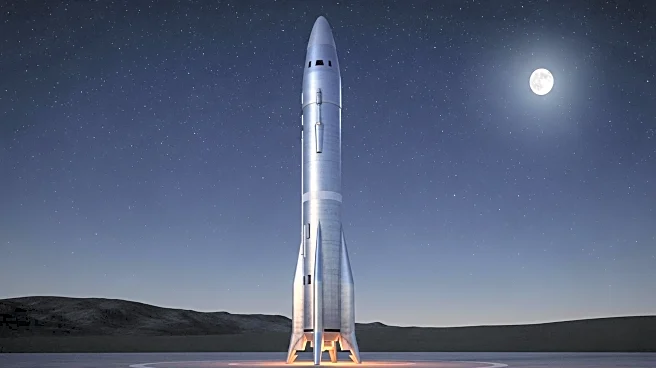What's Happening?
The U.S. Space Force has expressed concerns regarding China's rapid progress in reusable rocket technology, which could potentially alter the strategic balance in space. During the Air & Space Forces Association's annual conference, Brig. Gen. Brian Sidari highlighted China's advancements in reusable orbital rockets, emphasizing the national security implications. The U.S. currently leads in reusable rocket technology, primarily due to SpaceX's innovations, which have reduced launch costs and increased frequency. However, China is aggressively pursuing similar capabilities, aiming to deploy megaconstellations and enhance its military and commercial satellite operations. Additionally, China has demonstrated significant progress in other space technologies, such as in-orbit refueling and remote sensing satellites, which further heighten U.S. concerns.
Why It's Important?
China's advancements in reusable rocket technology pose a potential threat to U.S. dominance in space operations. The ability to deploy satellites rapidly and at lower costs could enable China to expand its military and commercial presence in orbit, challenging U.S. strategic interests. The development of megaconstellations by China could rival existing networks like SpaceX's Starlink, impacting global communications and data transfer capabilities. Furthermore, China's progress in other space technologies, such as remote sensing and electronic intelligence satellites, suggests a comprehensive strategy to enhance its space capabilities, which could have significant implications for U.S. national security and global space governance.
What's Next?
The U.S. Space Force is likely to continue monitoring China's advancements in space technology closely. Efforts may be intensified to maintain the U.S. lead in reusable rocket technology and satellite deployment capabilities. Collaboration with commercial entities like SpaceX, Blue Origin, and Rocket Lab could be crucial in scaling up reusable systems to counter China's progress. Additionally, diplomatic and strategic measures may be considered to address the potential security challenges posed by China's expanding space capabilities. The U.S. may also explore partnerships for orbital cleanup and debris mitigation to ensure sustainable space operations.
Beyond the Headlines
The ethical and legal dimensions of space technology advancements are becoming increasingly significant. As nations like China and the U.S. expand their capabilities, questions regarding the militarization of space and the potential for conflict arise. International agreements and regulations may need to be revisited to address the growing complexities of space operations and ensure peaceful and cooperative use of space resources. The long-term implications of these developments could reshape global power dynamics and influence future space exploration and utilization strategies.









